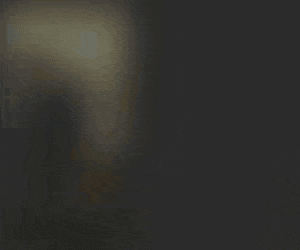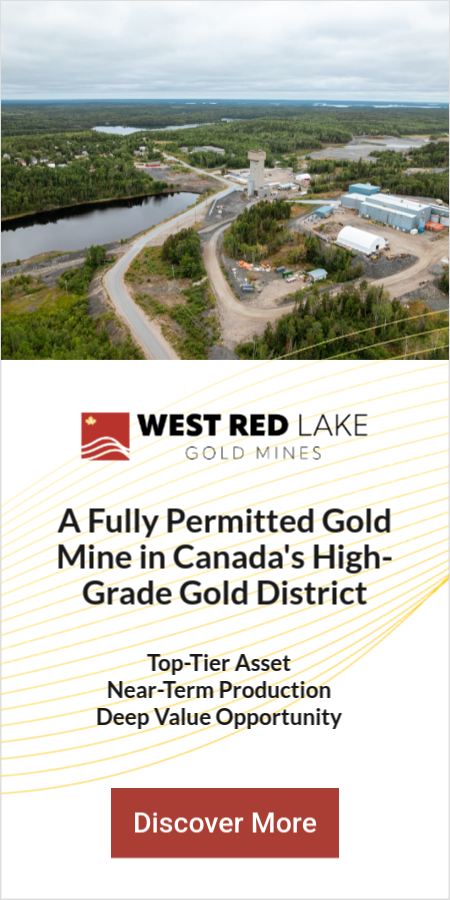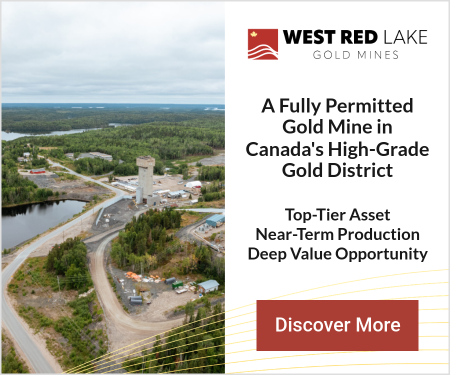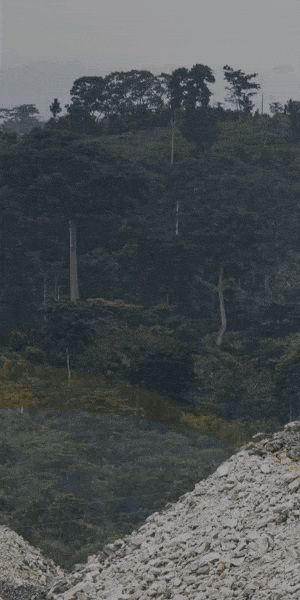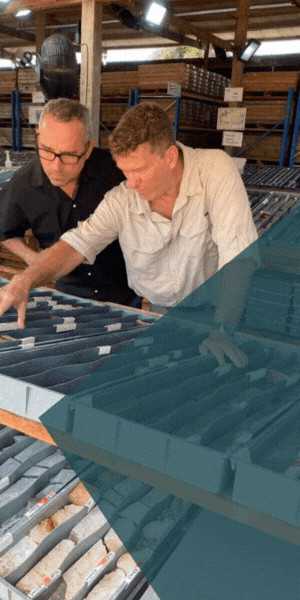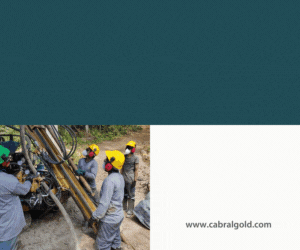Gold Terra Resource (YGT) - Gold Explorer Starts to Think Commercially
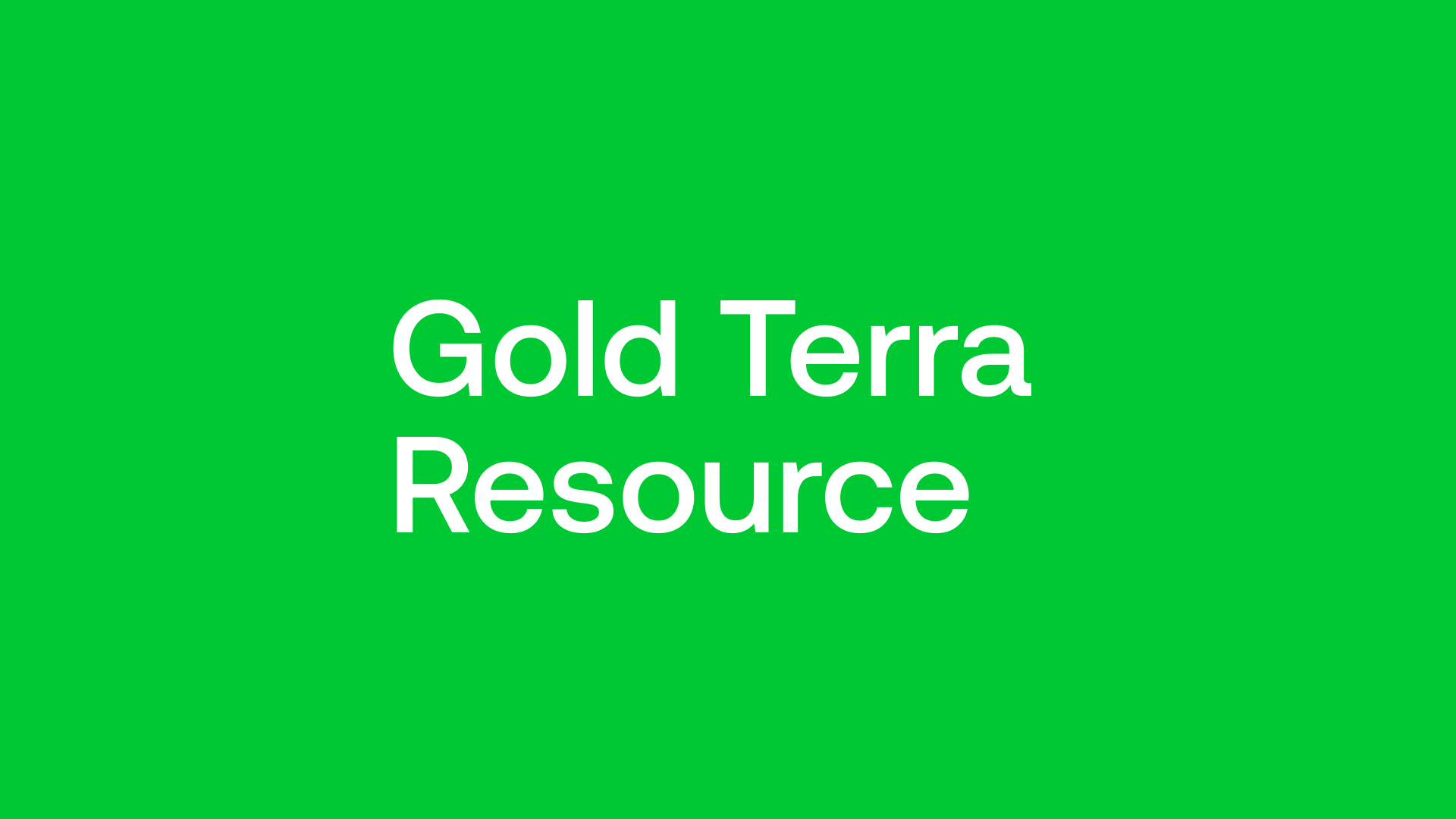
Gold Terra Resource (YGT) - Gold Explorer Starts to Think Commercially
Gold Terra Resource, formerly TerraX, is a junior gold explorer that owns a district-scale land position next to the City of Yellowknife in the Northwest Territories, Canada.
Ex-broker, Suda joined this story a couple of years ago, and he is coming at it from a financial perspective. He used to work in financial markets in Toronto, so bringing his commercial knowledge was key to TerraX's transformation from a technically and geologically driven company on a slow decline to a gold explorer with strong credentials.
Suda has brought in several new faces and has strengthened the balance sheet, changed the share registry and significantly enhanced the general direction of this gold junior. Gold Terra Resource is now on the comeback trail, and it looks like it has the start of 2 decent gold projects, Yellowknife City Gold and Mulligan Gold. Now, it is up to Suda and his team to monetise them and return value to their patient investors.
We Discuss:
- 2:46 - Company Overview
- 3:37 - TerraX to Gold Terra: Opportunities, Difficulties, & Redevelopment
- 9:48 - Business Plan and End Goal
- 12:38 - Team Experience and Dynamics
- 17:32 - The Market VS The Company: What's Driving the Share Price?
- 19:40 - Changes to Investor Base
- 21:46 - High Grade VS Low Grade: Process, Plan, Studies, & Differentiation
- 29:57 - Management Shareholding
Matthew Gordon: Can you just give us a one-minute overview of the company?
David Suda: We have got an 800 squared km property which is our flagship asset. It is in North West Territories, Canada. It is directly adjacent to the city of Yellowknife. We are a junior gold exploration company called Gold Terra. We recently changed the name to Gold Terra from Terra-X. We are not looking for X we are looking for Gold.
Matthew Gordon: It has been on a steady hike down since the end of 2016, beginning of 2017, what has been going on and what are you doing there?
David Suda: I have been in equity capital markets. I was in sales and training and I did some investment banking. Over the years I was always focussed on resource and mining. There is a language there that I spoke and while my colleagues were focussed on cannabis, I came across this company and I came across a shareholder of the company who was not so happy with the way things were going, and said, this company needs a strategy, it needs somebody with capital markets experience and some ability to access capital. I looked at it. It ticked all the boxes and I said, this is a huge opportunity for me. I think in a lot of ways this was a great change; instead of focussing on 30 companies, 28 that were you know, not that good and two that were great, and leveraging all of my best relationships that I had earned the trust of over many years, I said, let’s put our eggs in this basket, and you do your due diligence. I know what I was getting into, eyes wide open. There was some hair on the dog but ultimately, I thought it was a great vehicle, it just needed some repairs. That was about 2-years ago, and as with every vehicle that you think needs a few repairs, you start to peel back the layers and you realise that it needs more work than you thought. But I was up for that.
Matthew Gordon: What do you think was wrong when you first looked at it?
David Suda: I saw the obvious thing that everybody else saw that we are great. But the opportunity was the mess-up; they lacked focus in the way that they were exploring the project. They were land grabbing. Really, it was just lucky for them and us, and hopefully, for some of those watching, this was all done at a time when no one really cared about mining. This was a great time to do a ‘land grab’, but over time, if you are only focussing on getting more land, and this is very prolific prospective good-looking land. Even a guy like me who is not geo gets there and goes, ‘Wow – this is good-looking rock.’ But seriously, this is one of those things where you need access to capital and when markets are crappy, it’s really hard to get. Hand-to mouth on money for drilling and exploration and you have this growing, amazing property that you are excited about as a company or as a geologist. In this case, it was Joe Campbell who has a great history of geology, very successful guy, very smart guy. Just as a group, they lacked real access to capital and they lacked a vision for building a public company with a Gold asset, that was very apparent to me from the outset. It was like, okay – what are we going to do about it?
Matthew Gordon: How much money was in this when you walked into it?
David Suda: Quite a bit. They managed to get some pretty decent shareholders in, people who saw the same thing I saw. But shareholders who believe in something. Who can be long term? Who can fly the flag through the storms, they are not management or leadership, you can’t expect them to be management or leadership? They have other jobs. They have other priorities. They are shareholders. They want to see value creation. And over time, if you don’t create value for shareholders, they get tired. And no matter what you do, they just don’t want to be there anymore. That’s one of the challenges that I didn’t see, coming into the company. I underestimated how tired the shareholder base was. Fortunately, my home in the equity markets world was institutional trading so I spent a great deal of focus and time and effort on placing stock: taking it from tired hands and placing it in fresh blood. That’s that energy that you effectively have to re-energise a company that’s in the state that is described. You have to bring new people in. You have to bring a new vision. You have to bring shareholders. You have to bring a new focus and a new strategy. Everything has to be new. People ask me, why did you change the name? Is this just a re-tread? No. It’s a symbol of a new dawn, right? It’s a new era, new energy. Everyone is reinvigorated to do something.
Matthew Gordon: What did you walk in thinking you were going to have to do to this company, and where is the endpoint? What are you building here?
David Suda: It was really simple: we needed to focus. We needed to put the resource on the table and make sure that people understand that we aren’t just going to arm-wave around the blue sky – just running from gas fire to gas fire. Do you know what happens with a gas fire? The gas runs out. And then what’s left? Nothing. Scorched earth. You can’t do that as an exploration company. Eventually, and lots will do that, in this bull market, lots will do that – be careful. But in a hard market, when you are a holding a really good company for the market that we are in, you have got to do a couple of things: 1 – you got to constantly drill. You can’t stop drilling and then re-prioritise and say, we’ve got this new property over here, that looks more interesting, and bring up this huge intersection and then the stock goes up on maybe the prospect of drilling that. That was what was going on.
With Gold Terra, it’s simple: be drilling all the time. Get a resource out for the first time in 6-years. Be realistic about that resource. Make sure you never take an ounce off the table. If you have a resource out at spot gold, you put it out at USD$1,300 – very conservative price, right? And you put out a conservative set of parameters to make sure that those ounces are there for shareholders and then you need to start to build on that consistently. And the only way you can do that is if you are well-funded, you are drilling, and you have a team that you can trust. I’m not a geologist. I have got to make sure that our company has a team that when we put together a drill program when we say we are going to build ounces, we actually build ounces.
The rubber is going to hit the road at the end of this year when we come up with an updated resource on our two main targets that make up our 43-101 inferred resource - that is a simple start, right? You have got to start to backfill, or at least pad your valuation with something real. No gas fires. Then you can go and say, by the way, we are in this hugely prolific district that we have amassed when nobody else cared. We are the apple of everyone’s eye and so small bumps to your resource on your current targets aren’t great, maybe they are going to be big, I don’t know. But at the same time, people are looking to make big discoveries in this market. There hasn’t been a discovery made in Gold, like a real one, gosh, I can’t even remember when that was. We have got to go for that.
Matthew Gordon: Let’s talk about the team: Gerald Panneton He is a big deal. Is he for real or is he just a name on a PowerPoint?
David Suda: Oh, he’s for real. One of the reasons that I was so pursuant to Gerald’s involvement in the project, albeit a controversial move by some people’s opinion, but this is a guy who is extremely passionate. He has a track record of success. He doesn’t mince words. He has bought over USD$5M shares in this company since last fall. He calls me ten times a day. I hired myself the toughest boss I could have in away. He is the executive chairman. He is a guy who is in everybody’s business all of the time and he is what this company needs because he keeps us honest. When you wake up in the morning to somebody who is on it, when you wake up to 6 emails from somebody and they are asking you questions, everything from budgets to balance sheets, drill holes to how much you are spending on marketing, that is somebody who is driven. He is real. This isn’t just some guy who we gave some options to, by the way, Gerald wouldn’t take options. He said, take my money. I’m buying stock in the market. We don’t want dilution. Let’s save options for people who can’t afford to take this chance as much as I can. This is a guy who is committed. He is real.
Matthew Gordon: Remind people of some of the things he has done in the background.
David Suda: He was 12-years with Barrick where he worked with, and you may get to the names so I may as well introduce them, he worked with Louis Dionne, who was effectively Gerald’s mentor. He is a mining engineer with a very successful track record in the mining business. Gerald will say he is one of the best engineers in Canada. I don’t get to say. I will take Gerald’s word for it because Gerald, after Barrick founded Detour. He bought the asset from Pelangio and created the vehicle and put together a company which sold for almost USD$5Bn, with some bumps along the way, but this is a guy who is very passionate. He is not the kind of guy to jump to any project and arm-wave around it. This is a guy who says, when there is something here, he means it. He’s like a dog with a bone; he won’t let go until the job gets done. That history carries forward to this project because it was an immense challenge to get him to understand and see the potential. It wasn’t that he didn’t see the potential. He saw everything that I saw and what we were talking about earlier, but he questioned whether we could overcome the challenges of the past. That was the obstacle with him.
Matthew Gordon: How did Joe Campbell feel about that?
David Suda: I think after 6-years of doing what he was doing, with all of the best intentions, Joe realised that a new set of eyes and somebody else to help shoulder the burden of responsibility for decisions that were being made technically, it was probably a relief. I don’t want to put words in Joe’s mouth. Joe is a very smart man. His personality is very even. He sees things for what they are. He is the kind of guy I would want next to me if I was in a car accident. He would just be able to act whilst everyone else is freaking out. With that in mind, Gerald comes into the fray, they spend a day together in Ottawa. All of a sudden, Gerald goes, Eureka! This is amazing. I love it. He starts to put the screws to Joe, and Joe says, it’s fine. I’m a big boy. I’ve got my own opinion, but I could also use an extra set of eyes. So, they work very well together.
Matthew Gordon: Do you think there is anything that you are doing that is having an effect or do you think it is just purely the market?
David Suda: Definitely some of the things we are doing are having an effect. It’s a combination of a lot of things. Some of it is intentional but, in some ways, sometimes it is better to be lucky than to be smart. We have been smart for a long time. We’ve been doing good things for a long time and the stock price wasn’t responding. The one thing we didn’t do that much of through our winter drill program and into COVID, for better or for worse, really focused on marketing, really spreading the word, because I didn’t feel, and Gerald didn’t feel that we were really ready. Because of the confluence of events of raising USD$7M, going into high grade, identifying a new, tremendous target on the property, being on the eve of a resource update. Those are all things that once they are in place and you are funded, you are not saying, we’re going to do all this great stuff but we need to raise more money, we pushed the button on, let’s let people know what we are doing. That, of course, coincided with Gold hitting all-time highs.
We made the move and people were like, are you happy with where you are now? I said I’m less unhappy.
Matthew Gordon: Do you think if you put this resource out, you are going to get noticed, which comes down to timing rather than effectiveness?
David Suda: Of course, it matters. It matters in a great way. First of all, because we are in a market that cares about whether someone has a Gold resource: are you a gas fire company or do you have a resource? That matters. It also matters because our investor basis is changing.
From a very sort of stalwart, retail-based registry, which a lot of those shareholders have been great, but again, they are tired, they have been around a long time and need fresh blood to come in and fly the flag to support this new change. Obviously, my background is in institutional, so we have definitely bolstered our registry; I think we had about 9 institutions in our last deal. When I came to the company you didn’t need my fingers to count how many institutions were in it, and they were on the exit. Again, environments certainly bolster certain groups to invest. Institutions are one of them. You can have the best institution in the world in your company and in a terrible market where they are seeing redemptions, they might love your stock, but they are selling. They are not great to have in your stock sometimes.
But in a bull market, people are piling money into institutional managers’ honeypots and they are needing to go out and deploy. Once they get power, they take big swings. We are definitely focussed on adding an institutional component and recognising that retail drives stock price. We are making those people who hung on and stayed with us very happy right now. I think that’s also going to be a big catalyst for us.
Matthew Gordon: Are you reacting to the market or are you reacting to the geology?
David Suda: We are acting to build a company and putting together a resource. Ultimately, you need to have a mine built in the city of Yellowknife. That’s where the value is. Whether we build it or someone else builds it, we are first building shareholder value. But you can’t build shareholder value without creating something.
You have low grade there, it’s accessible, it is economic. Any major is going to look at it and say, why would you leave that sitting there? It doesn’t make any sense. But it’s not sexy. It doesn’t drive stock price. The beauty of having high grade is that it does do things: first of all, it makes mining way easier – grade is king – if we only had high grade, that would be awesome, but you don’t throw low grade in the toilet. We had an opportunity to drill a lower grade target all winter long to add ounces, you can go on our website and see a Verify model where you can see the results sections there. You don’t even have to be a geologist; it is plain and simple; you can see that we hit Gold outside of our resource pits and when it comes time to calculate a new resource, we expect to add ounces there. Anytime anyone comes to us and says, that was boring. I guess making money is boring.
Now we go to high grade, if you talk to Gerald, I hope you do at some point, he will say, this is more exciting than Detour because Detour was low grade and so if it becomes a game of efficiencies, engineering and when you have a tough Gold price, you have to make your scratch. But with high grade, it solves a lot of your problems. Incidentally, the market knows that in an unsophisticated way. The market wants to see 5m of 100g or whatever these crazy things are. I’m seeing some companies have some great success, and we love to see that too. I love it when people compare companies and people pooh-pooh other people’s results. I want every Gold company to make a discovery because that’s going to be great for the marker; it will attract confidence and people will come to space. When somebody makes a huge discovery, or a company gets bought people want to invest in the next one and be the next one to make a discovery and find the next company that gets bought.
High grade is absolutely where we are focussed now. We are going to start drilling really soon on high grade and it's going to be on a deposit with historical success, but which has never been drilled to depth. Again, you look at something and what has changed? We are going deeper on this target that has never been drilled this deep, why? It doesn’t matter. We are going to drill it deep now.
Matthew Gordon: what is your plan? How long do you continue drilling for?
David Suda: You don’t stop drilling. You drill as much as you can. Especially in a market that is willing to give you money to drill because it’s all about finding Gold. When do you build a mine? When do you do a PEA? That doesn’t matter. We are going to bring shareholder value by continuing to move forward. Moving forward is adding to your resource consistently, not just once every three years and making people wait. If you are drilling all the time, then you want to be adding to your resource annually. If you are not doing those things…
Matthew Gordon: Do you just keep raising money whilst you can until you get drill results?
David Suda: At this point, our plan is to continue to drill the project until we have a meaningful resource. 735,000oz is not a meaningful resource.
Matthew Gordon: What’s your plan?
David Suda: We are right next to a town. We are in Canada. People are interested in a number way lower than 5Moz. In this kind of market…I know what you are getting at. We have a plan. Our plan is to get this thing off its ass. I think the stock should have been trading at USD$0.50c when I joined, this is just the beginning. We need to get moving. Let’s see what happen when we put out a resource at the end of the year and let’s see how people view that resource. Will we do a PEA in January? No. I don’t think so. I think we need more time than that. We haven’t even touched the Campbell Shear, which is our new most prospective blue-sky target, which we can talk about or investors can go to our website. It’s very simple: it is a structure which produced 5Moz of the 6Moz at the Con mine, and it runs on to our property south and north. We have got to drill that too because we believe that’s going to be a huge player in all of this.
I’d love to be pressed to say, yes, the plan is what we set out to do: we’ve got to drill high grade – step one. Increase our resource - Crestaurum. We have got to drill Campbell Shear and see what’s there. Can we find that next big discovery? Then we will think about the next phase. What I’ve just laid out takes us to April 2021.
Matthew Gordon: At which point you will work out what to do next?
David Suda: Yes. There will be a lot we have to say along the way to feed the market to get there.
Matthew Gordon: Does the money you raised get you to that point? Or do you go back out to the market?
David Suda: Yes. We officially stated we are going to drill 10,000m between now and the end of the year. First, we are going to get to Crestaurum where we are going to drill 7 deep holes. Then we are going to keep feeding you guys with information about what’s going to get drilled next. It’s all exciting because it’s a high grade.
Matthew Gordon: How many shares have you got?
David Suda: I’ve got around USD$1M. I have a lot of options which are very gracious of Mr Panneton, considering he has taken none. He’s goy USD$5M in shares. Joe has got a lot of stock. Our board members are all shareholders. This is a company that is aligned as well. Everybody here needs this to be a success for their own reasons. As I said to you, I moved cities, I left a career where I saw comfortable relaxation on the horizon because I wanted to do something real. I truly believe that one of the reasons why people get involved in the business I am in is because there is something to be said for creating something that is bigger than yourself. We want to be a big deal to the people of the city of Yellowknife. We want to have an impact there on people’s lives. We have been and we will continue to do that in a positive way as much as possible. We are driven.
Matthew Gordon: It’s nice to see you come in and shake things up, create a turnaround story. You have brought some of the right people in, that’s for sure. Stay in touch and let us know how you are getting on.
David Suda: Absolutely. I’m looking forward to it because we are nose to the grindstone. It’s nice to come up for air with something good to say.
Company Website: https://goldterracorp.com/
Analyst's Notes




Subscribe to Our Channel
Stay Informed


















